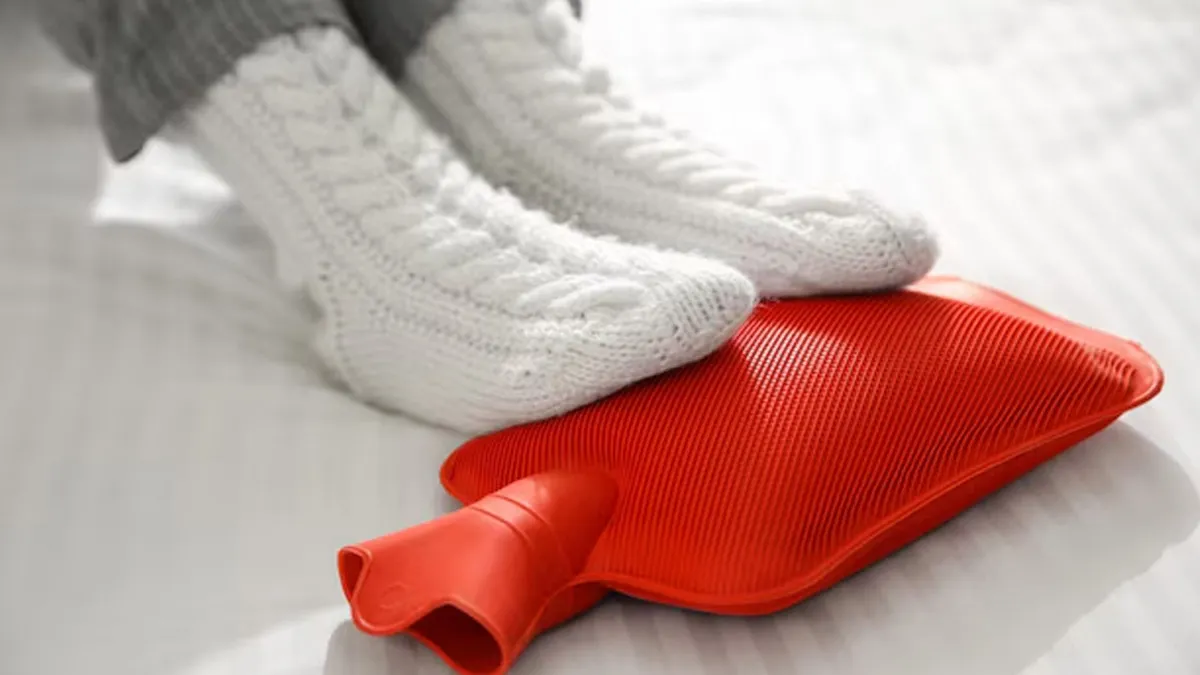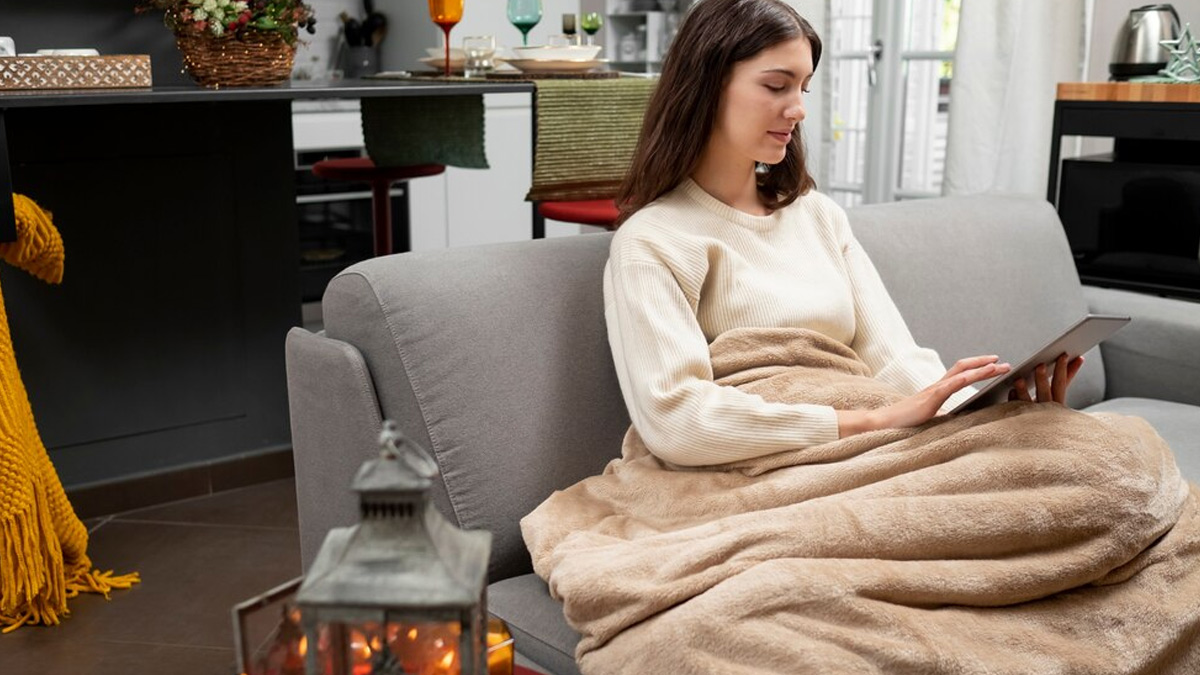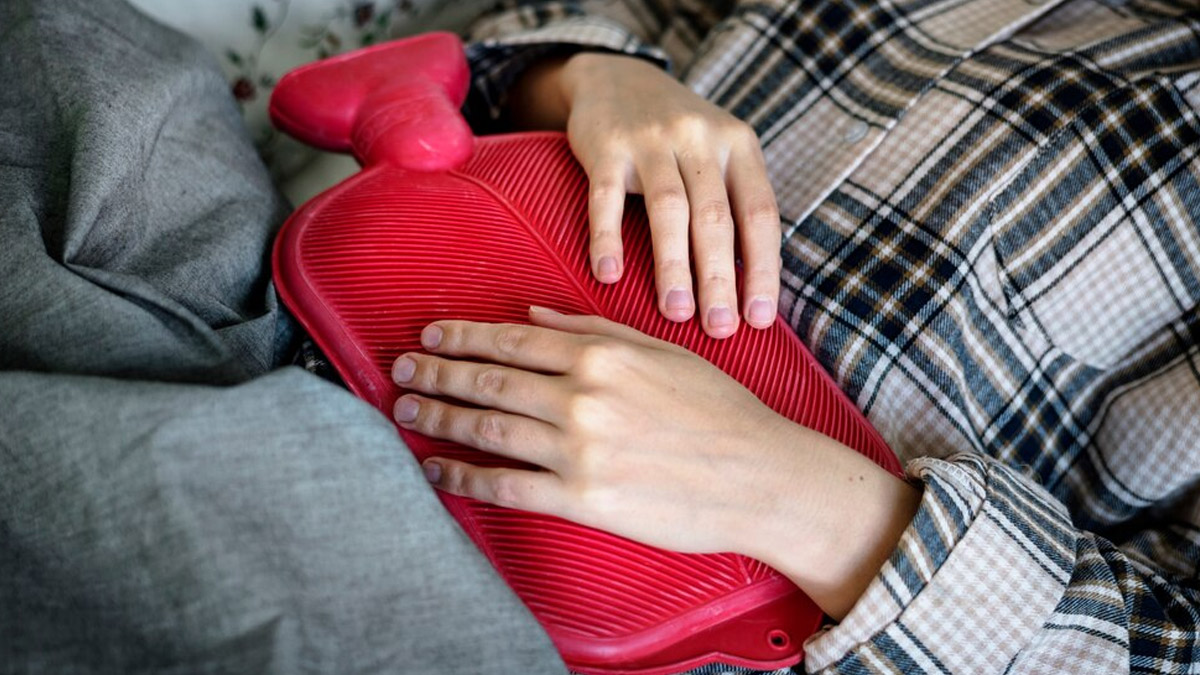
As it keeps getting colder with each passing day, sitting with a heating pad by your side is an ideal way to do your chores or simply sit back and get some rest. While the advantages of using a heating pad while sleeping are appealing, it's essential to weigh the possible risks involved with this habit.
Table of Content:-
RELATED: Can Heating Pads, Hot Water Bottles Cause Dehydration? Here Are Their Health Risks
Burns And Skin Irritation
-1737129764146.jpg)
One of the primary concerns is the danger of burns and skin irritation. Extended exposure to heat, particularly during sleep when awareness of our environment decreases, can result in skin damage. This risk is especially elevated for those with sensitive skin, diabetes, or conditions that impair sensation in specific areas of the body.
Overheating And Dehydration
Overheating and dehydration are also major issues when using a heating pad overnight. As part of its natural circadian rhythm, the body tends to cool down during sleep. Introducing external heat can interfere with this process, potentially resulting in excessive sweating and dehydration. This not only impacts sleep quality but can also pose health risks for individuals with particular medical issues.
Body Temperature Fluctuation

Sleeping with a heating pad can disrupt the body's natural temperature regulation systems. Throughout the night, our core body temperature fluctuates as part of our circadian rhythm, which plays a vital role in maintaining healthy sleep patterns. Continuous exposure to outside heat can upset this delicate equilibrium, potentially leading to sleep disturbances and negatively affecting the overall quality of sleep.
Reliance On Heating Pads
Additionally, there is a possibility of developing a habit of relying on heat for sleep. Although not a physical dependence, some people may find it progressively harder to fall asleep without the soothing warmth of a heating pad. This psychological reliance can be troublesome, particularly when away from home or in circumstances where a heating pad cannot be used.
Erythema Ab Igne
According to the Academic Dermatology of Nevada, Erythema Ab Igne (EAI) is a persistent type of erythema that appears as reticulated residual pigmentation resulting from prolonged exposure to excessive heat without causing actual burns to the skin. It starts as a mottling due to local haemostasis and evolves into reticulated erythema, leading to residual pigmentation.
Multiple shades can be present in active patches, ranging from pale pink to rose or dark purplish brown hues. Once the heat source is removed, the condition tends to gradually fade, but the pigmentation remains permanent.
Risk Of Other Diseases

Individuals who continue to experience prolonged heat exposure are at increased risk of developing Bowen’s disease, squamous cell carcinoma (SCC), and Merkel cell carcinomas. Bowen’s disease and SCC generally respond well to treatments like photodynamic therapy. In contrast, Merkel cell carcinomas are often highly aggressive and may necessitate wide local excision and possibly radiation therapy.
RELATED: Cold Weather and Cigarettes: Heightened Risks for Heart Disease and Impaired Lung Health
Tips For Safe Use Of Heating Pads
If one decides to utilise a heating pad despite these hazards, it is crucial to adhere to safety recommendations:
- Use the heating pad for no more than 20 minutes at a time.
- Always place a cloth between your skin and the heating pad.
- Ensure that the pad isn’t set too high; moderate warmth is adequate.
- Give your skin time to cool down before reapplying heat.
- Drink water before and after using heat therapy; staying hydrated helps regulate your body’s temperature.
Also watch this video
How we keep this article up to date:
We work with experts and keep a close eye on the latest in health and wellness. Whenever there is a new research or helpful information, we update our articles with accurate and useful advice.
Current Version